The Islamic holy month of Ramadan, which ends this week, is a time of spiritual renewal, communal bonding and reflection on one’s relationship with God and fellow human beings.
But this year, in Jerusalem’s Old City and across the Muslim world, evening feasts to observe the end to a day of fasting have been shaped by sadness and frugality.
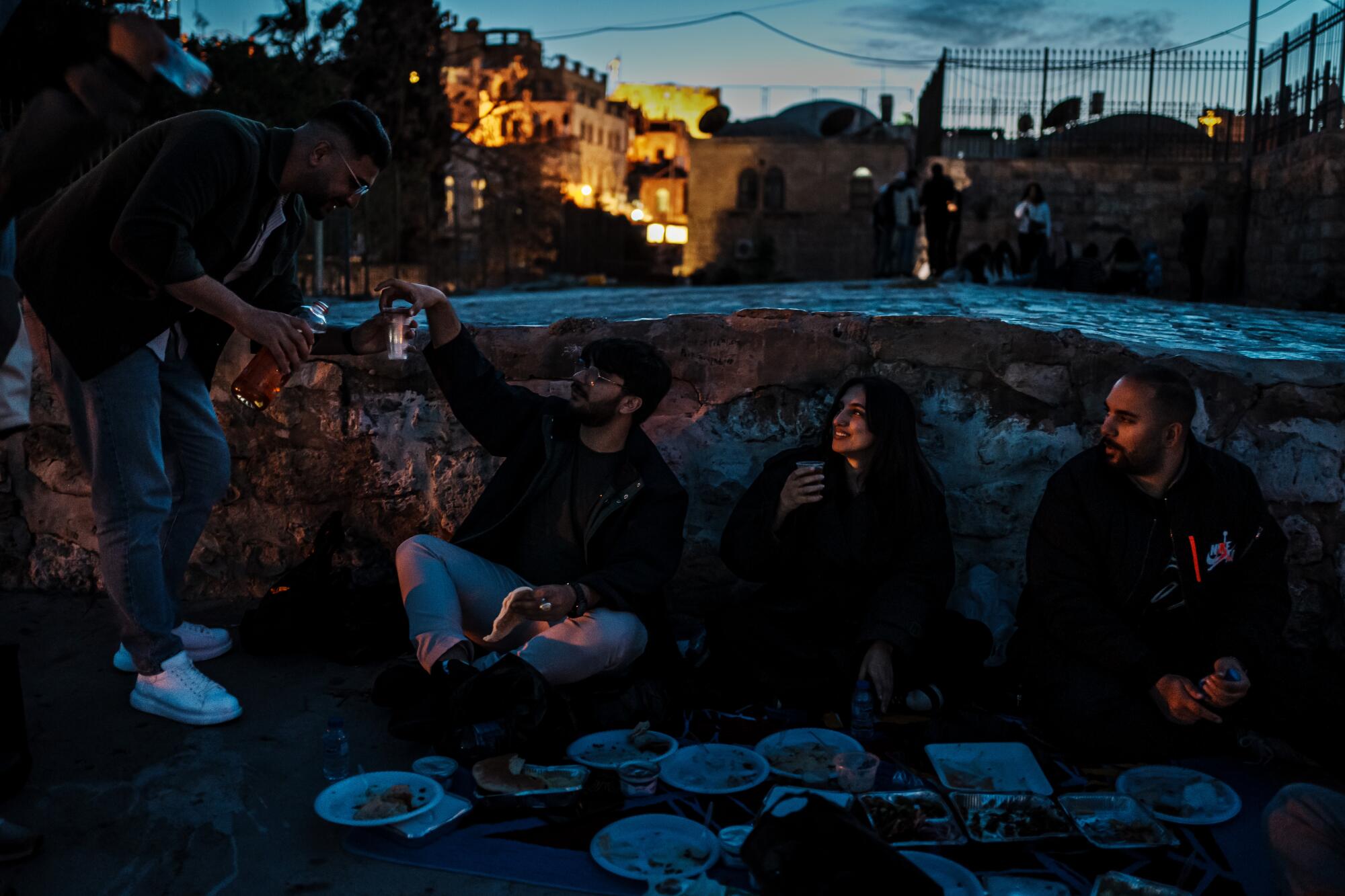
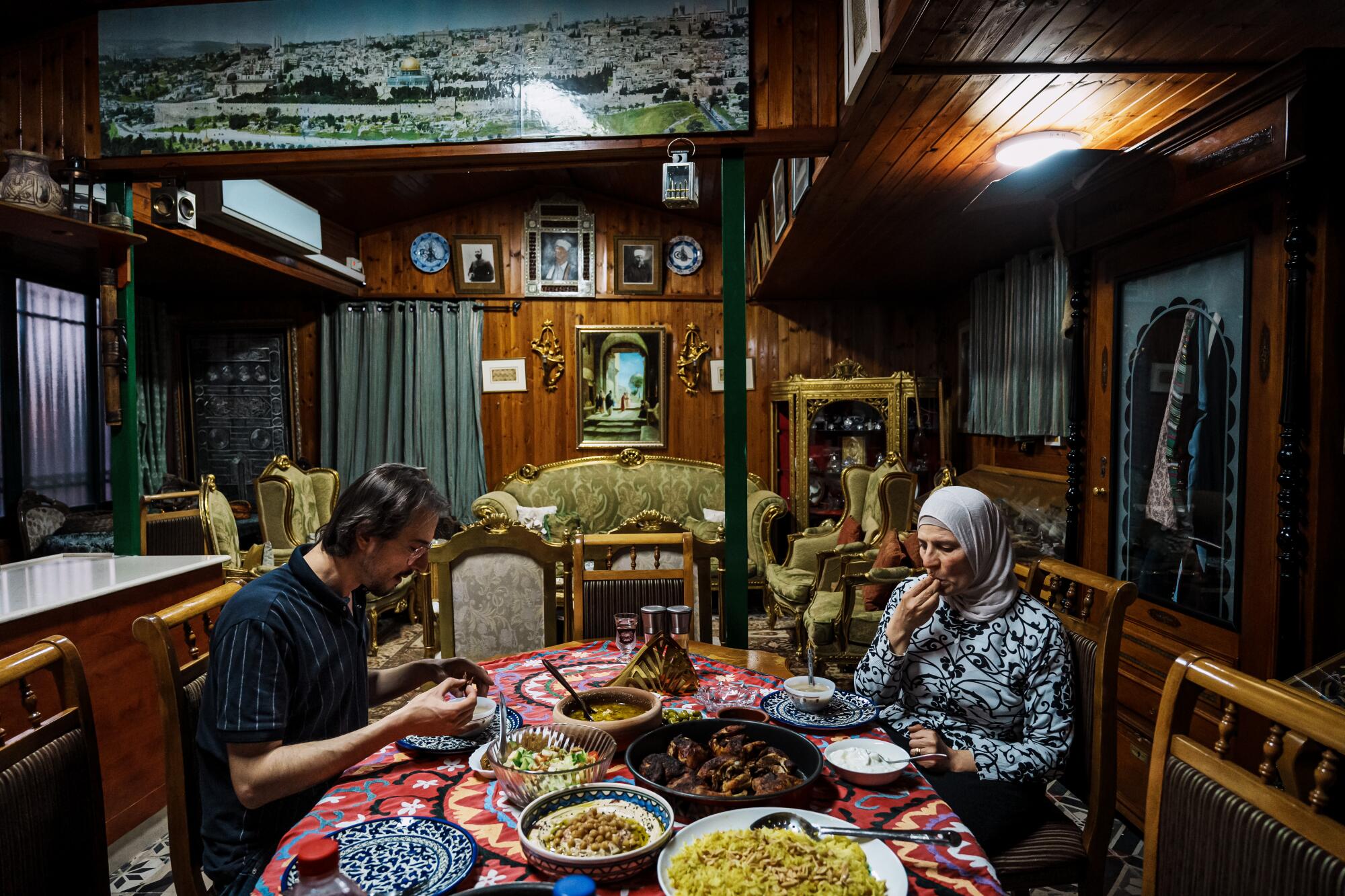
Like many Muslims, chef Izzeldin Bukhari and his mother, Hala, of Jerusalem have forgone traditional extravagant “break fast” meals for simple dishes out of sympathy for the suffering of fellow Palestinians trapped in a ferocious war in the Gaza Strip between Israel and the Hamas militant group.
On a recent Friday, as the call to prayer echoed through the Old City’s Muslim quarter, the pair broke their fast in silence, eating reheated leftovers and stale bread dipped in a garlicky sauce.
1
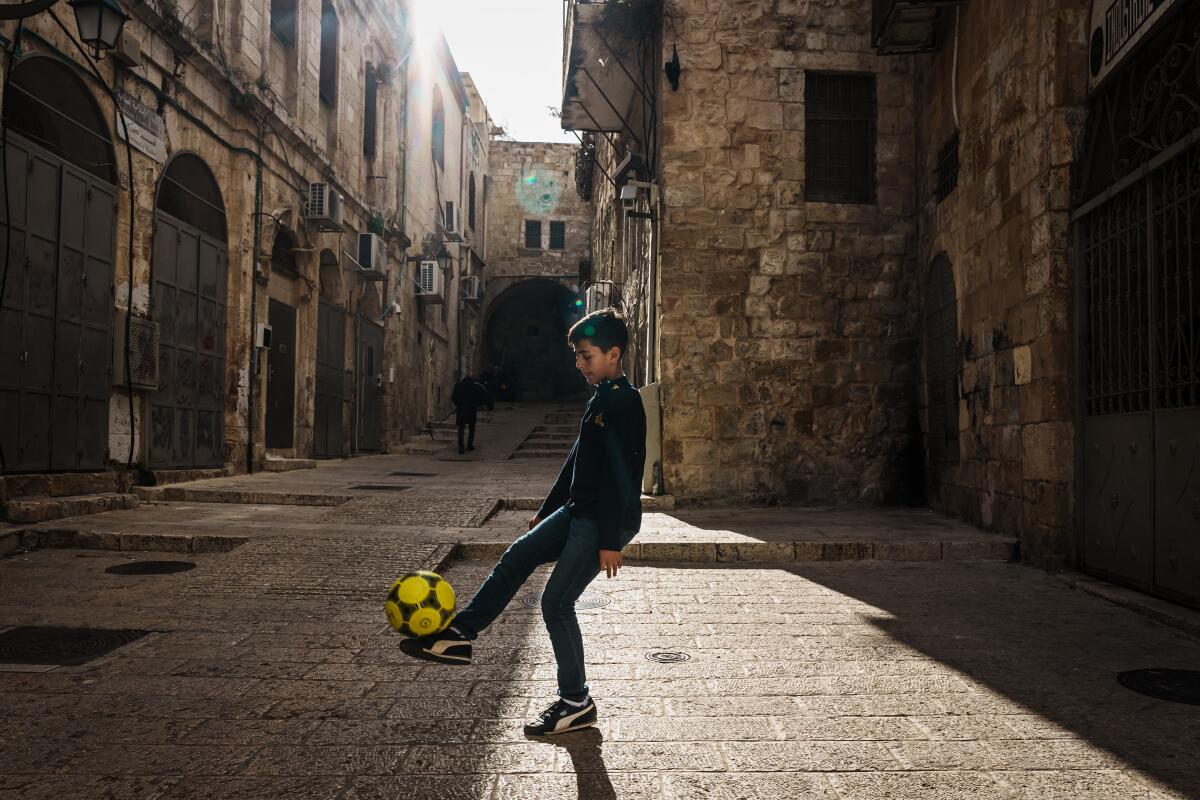
2
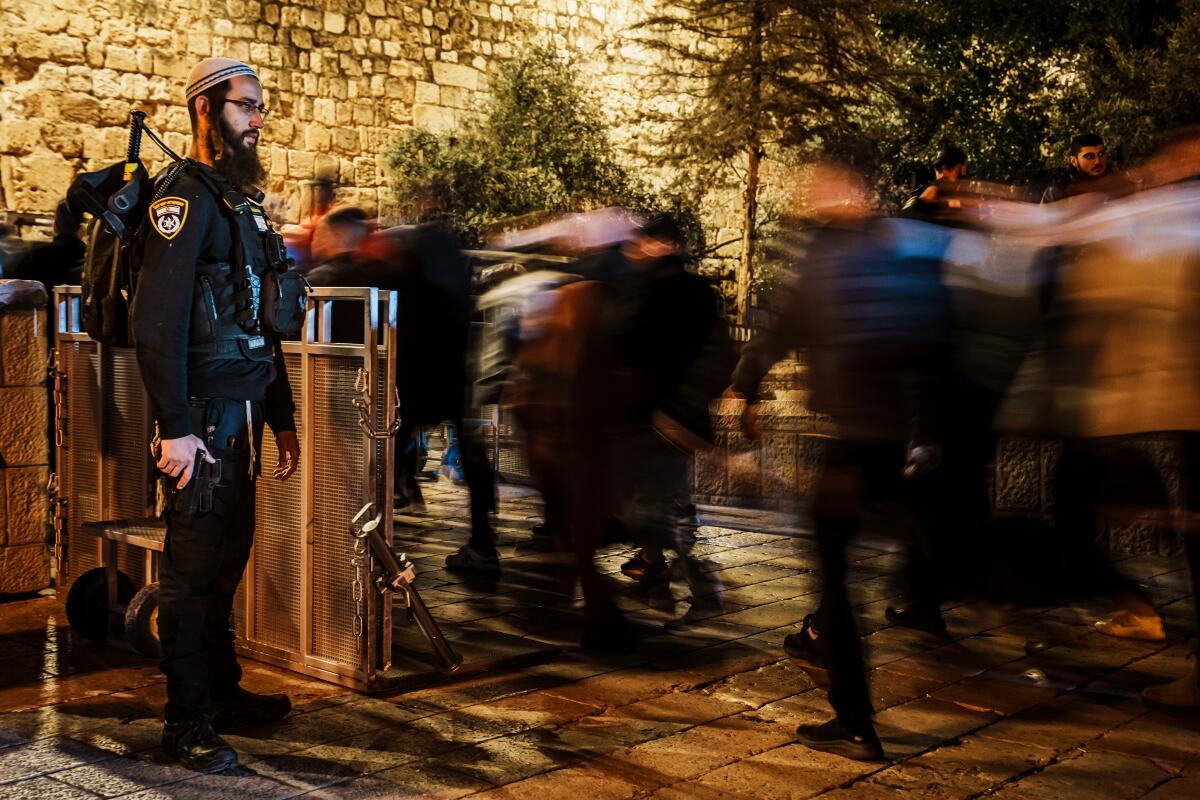
3
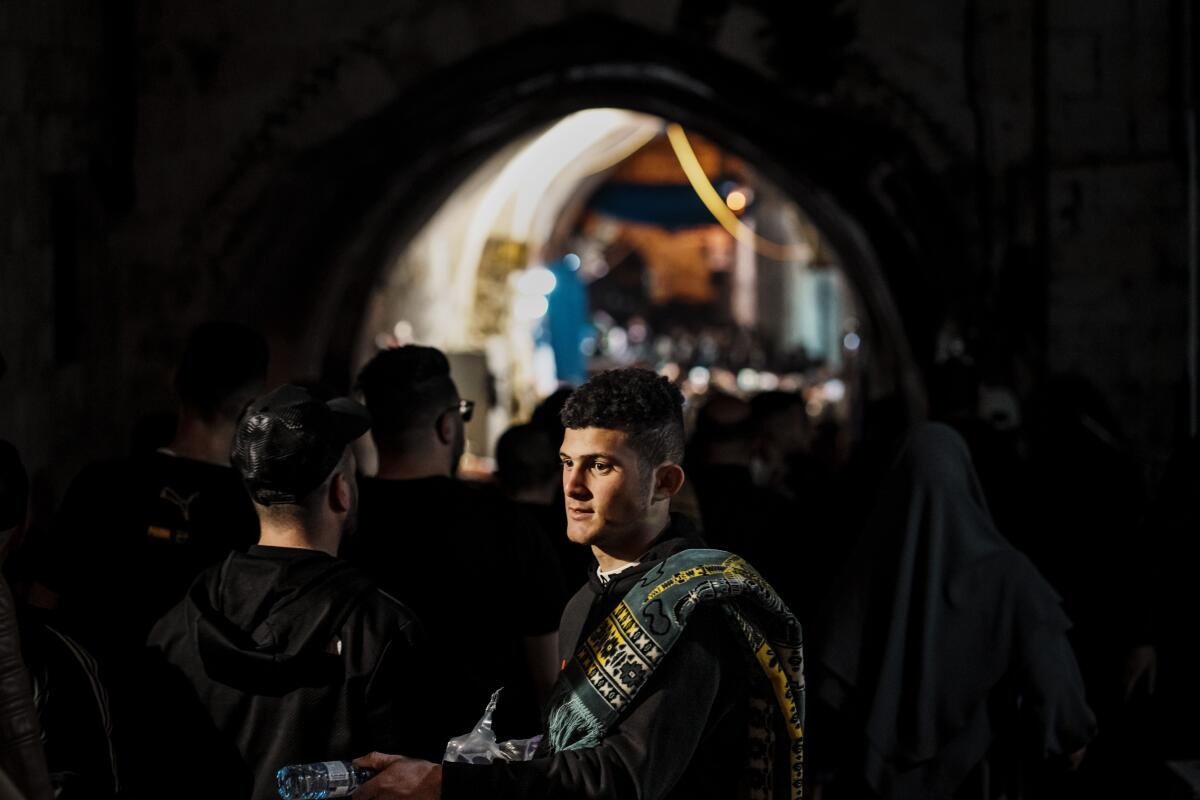
1. A Palestinian boy plays in the Muslim quarter of the Old City. 2. Israeli security officers stand guard as worshipers line up to enter the Al Aqsa Mosque compound. Security has been increased amid the Israel-Hamas war in Gaza.
3. A man hands out water to those on their way to Al Aqsa Mosque along a path that this year is devoid of the usual Ramadan decorations.
Like many Palestinians, the Bukharis have relatives in Gaza, where most have been unable to escape six months of Israeli bombardment that has killed more than 33,000, mostly women and children, according to Gazan officials. The war began Oct. 7 when Hamas-led militants from Gaza attacked southern Israel, where about 1,200 people were killed and about 200 taken hostage, authorities say.
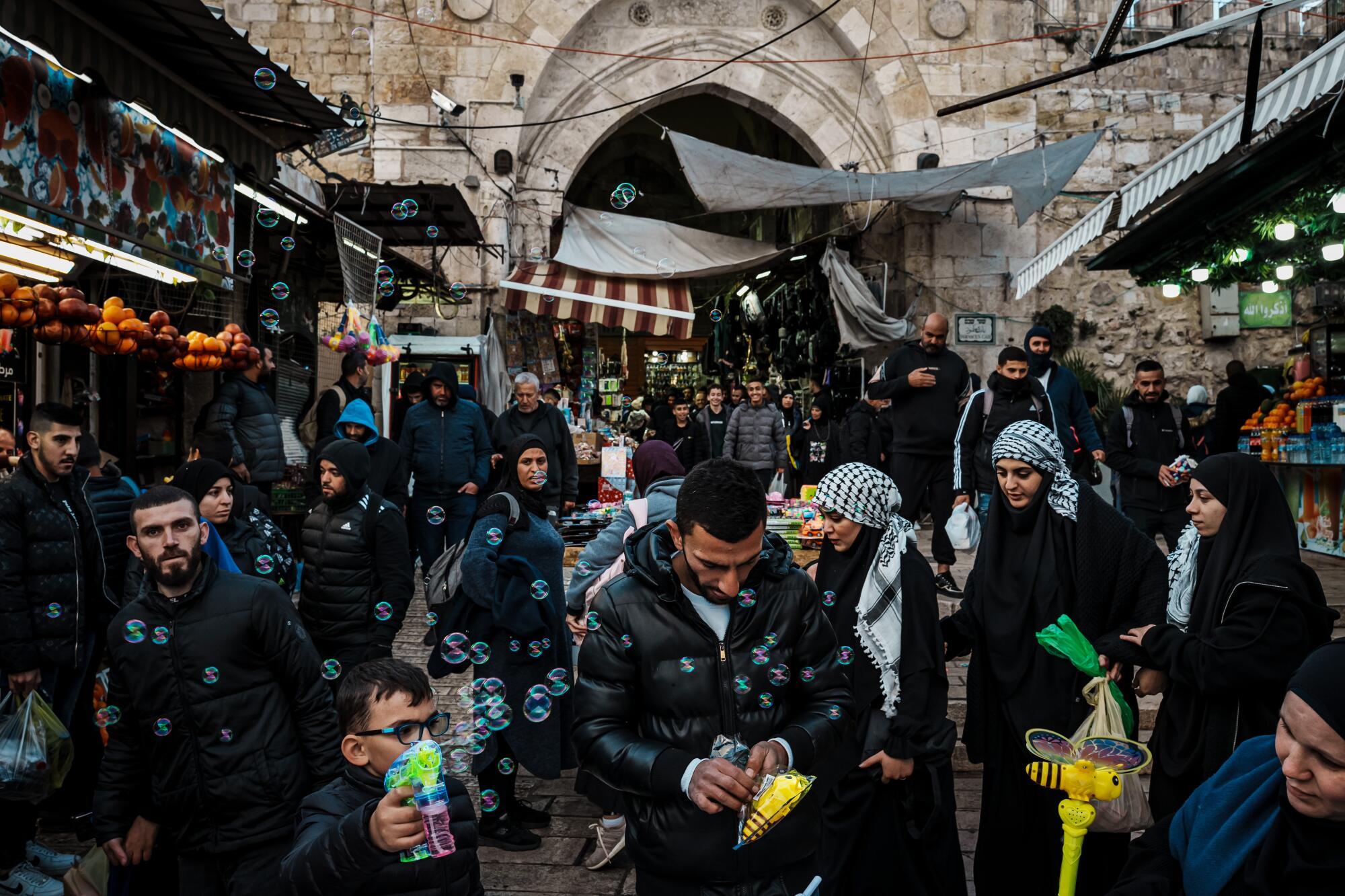
In addition to widespread destruction, Gazans are enduring severe shortages of food and medicine and face possible famine in the coming weeks, according to aid groups.
The staggering death toll and scale of suffering changed how Ramadan has been observed. Jerusalem, home to some of Islam’s most holy sites, is normally festive with music, bright lights and colorful decorations along the Muslim Quarter’s stone alleyways.
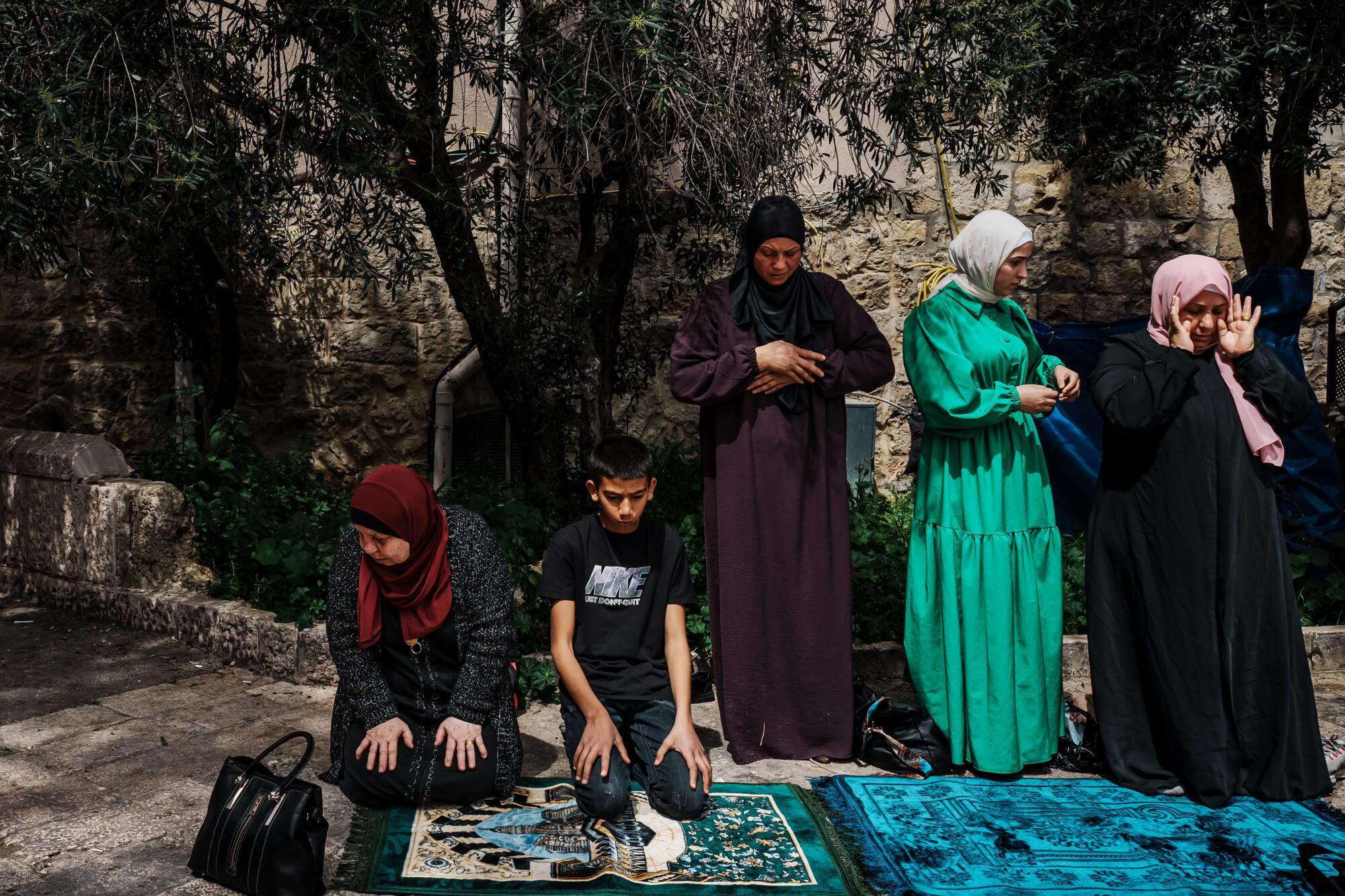
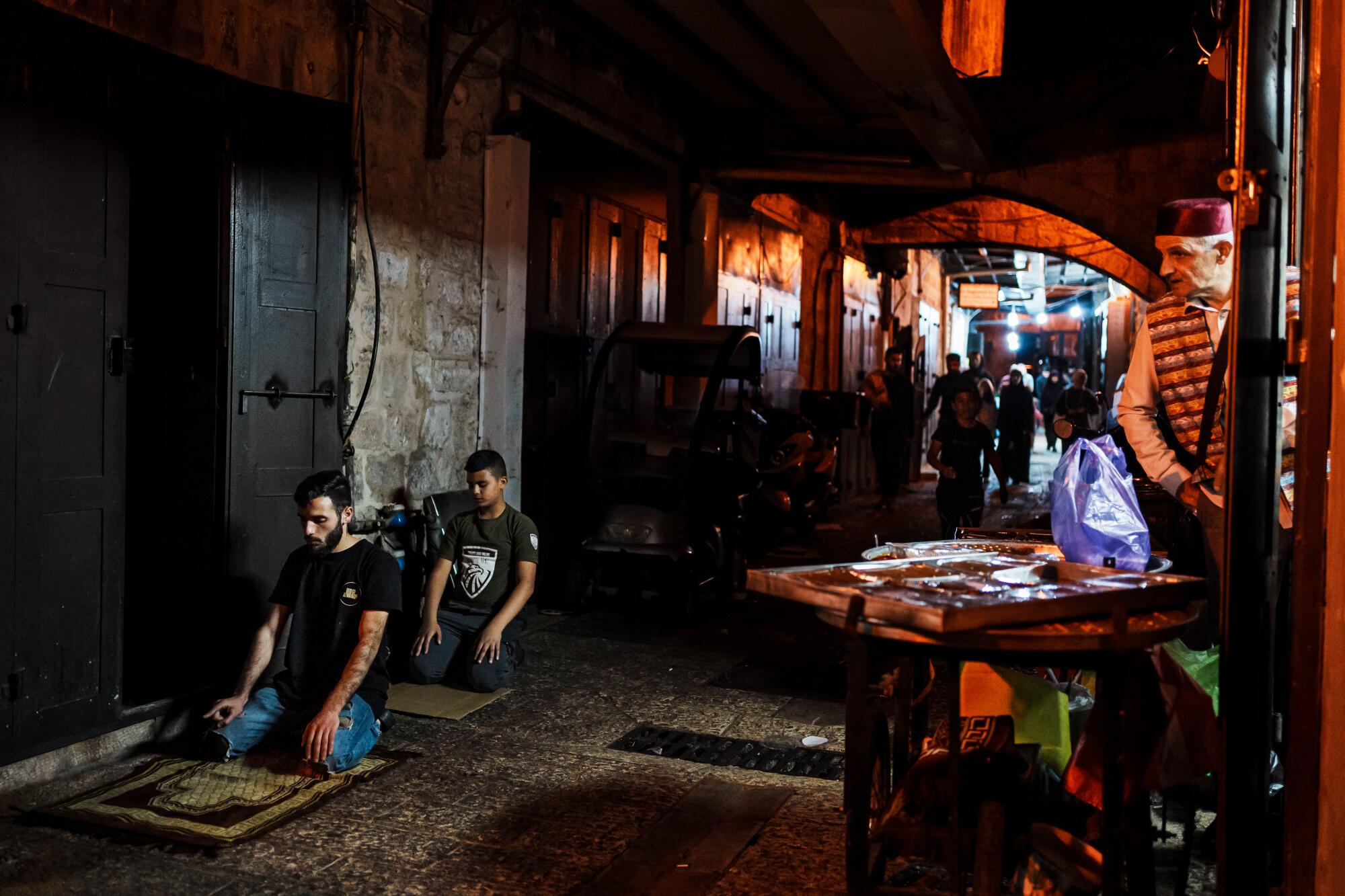
1. An overflow of worshipers pray outside the mosque. 2. Shopkeepers in the Old City kneel for evening prayers.
This year, worshipers walked through dimly lit paths, devoid of signs of celebration, a somber reminder of the war in Gaza.
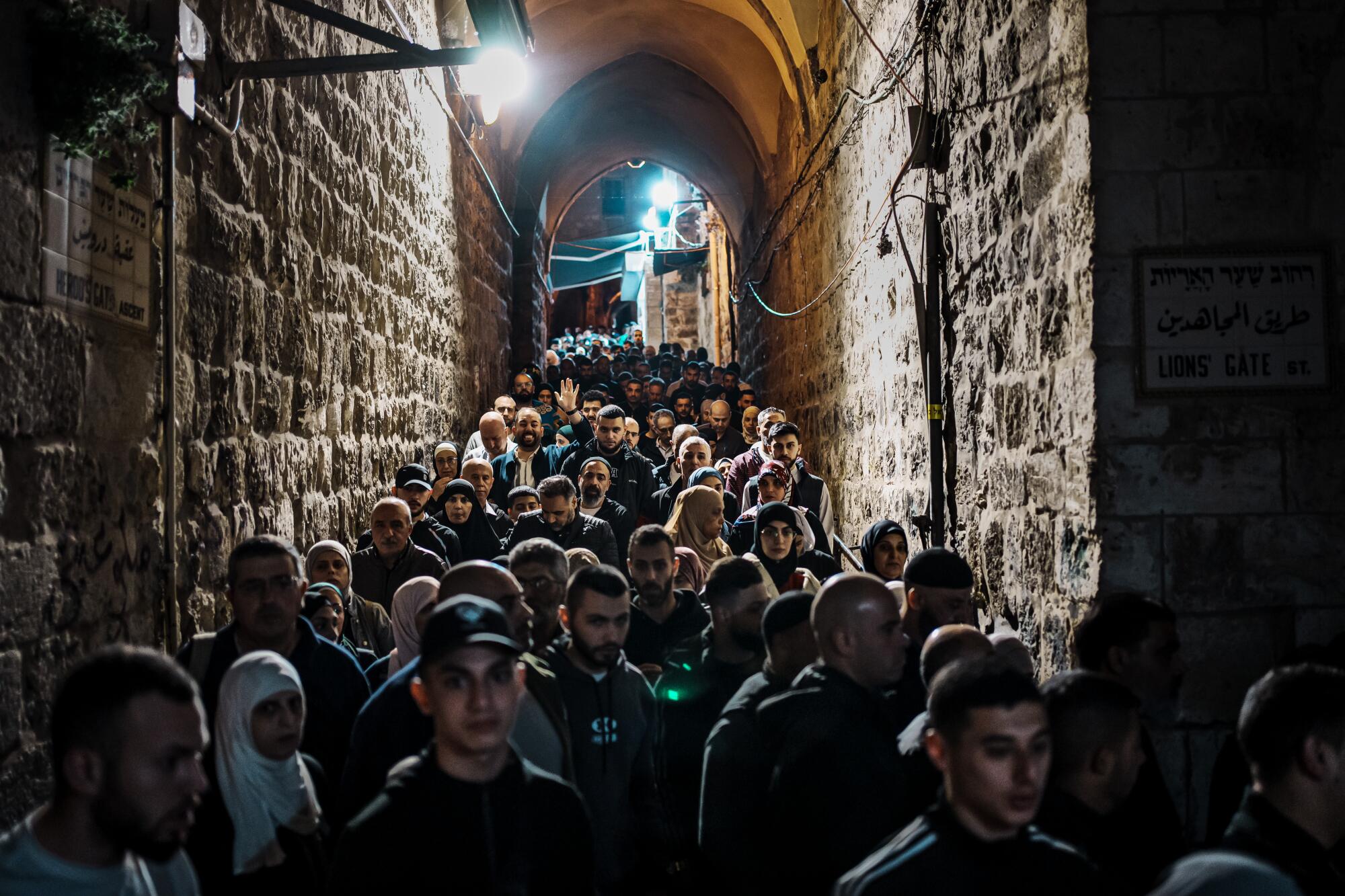
Muslims make their way to Al Aqsa Mosque along a path devoid of Ramadan decorations.
1
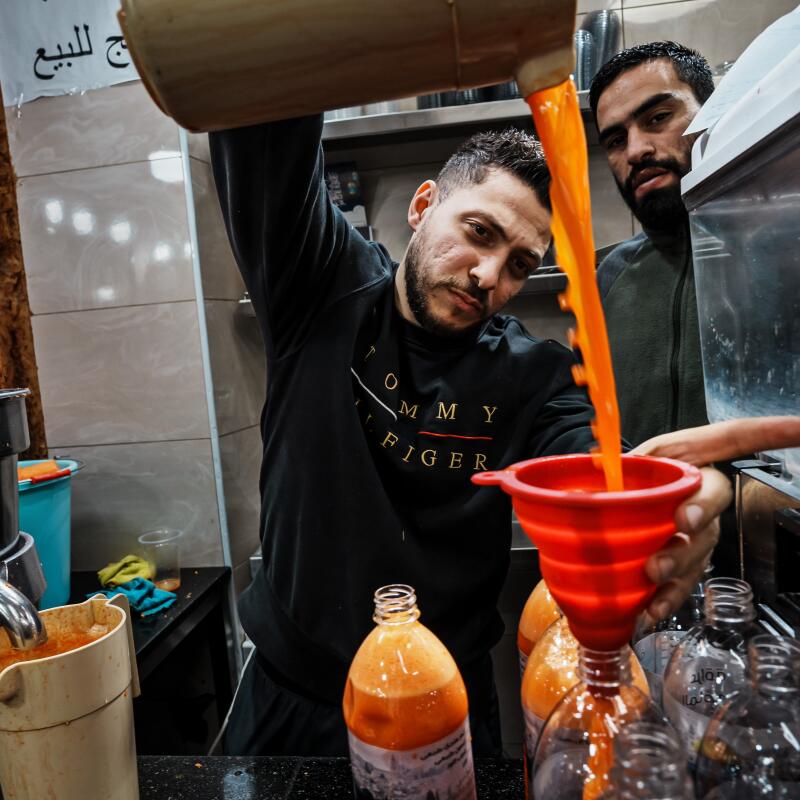
2
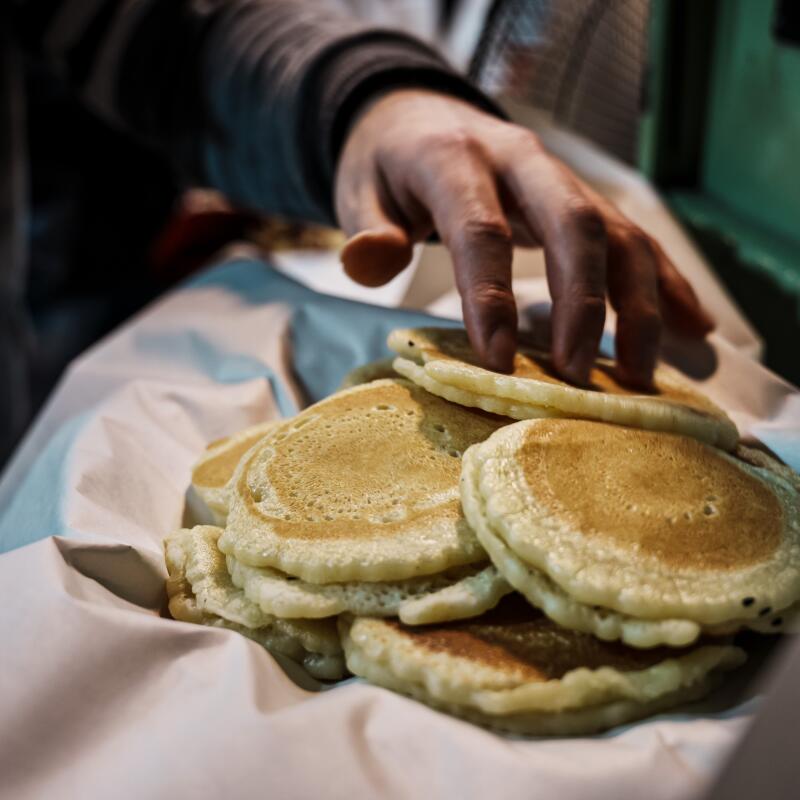
3
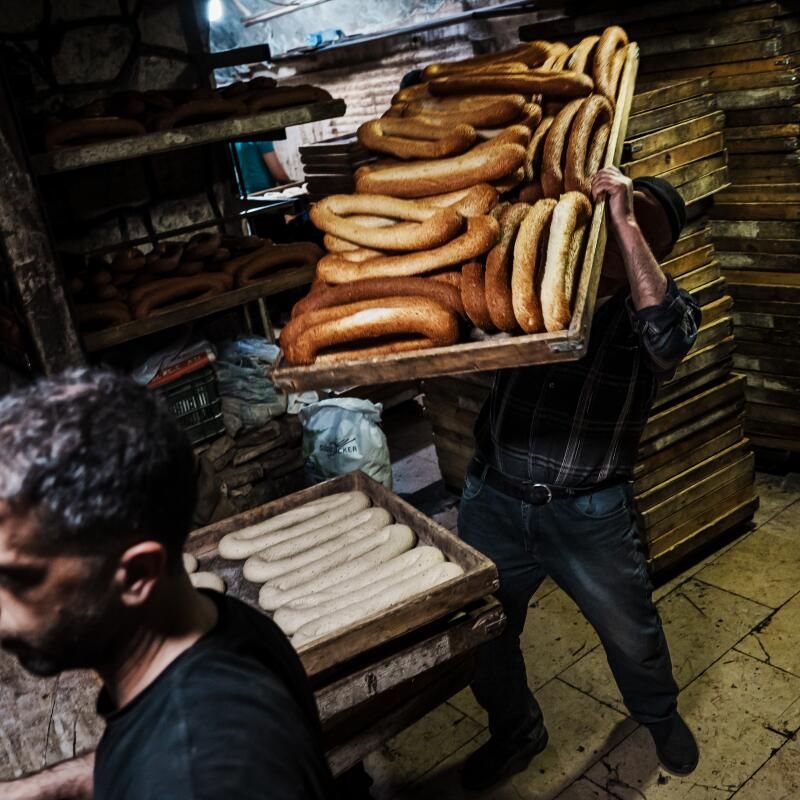
4
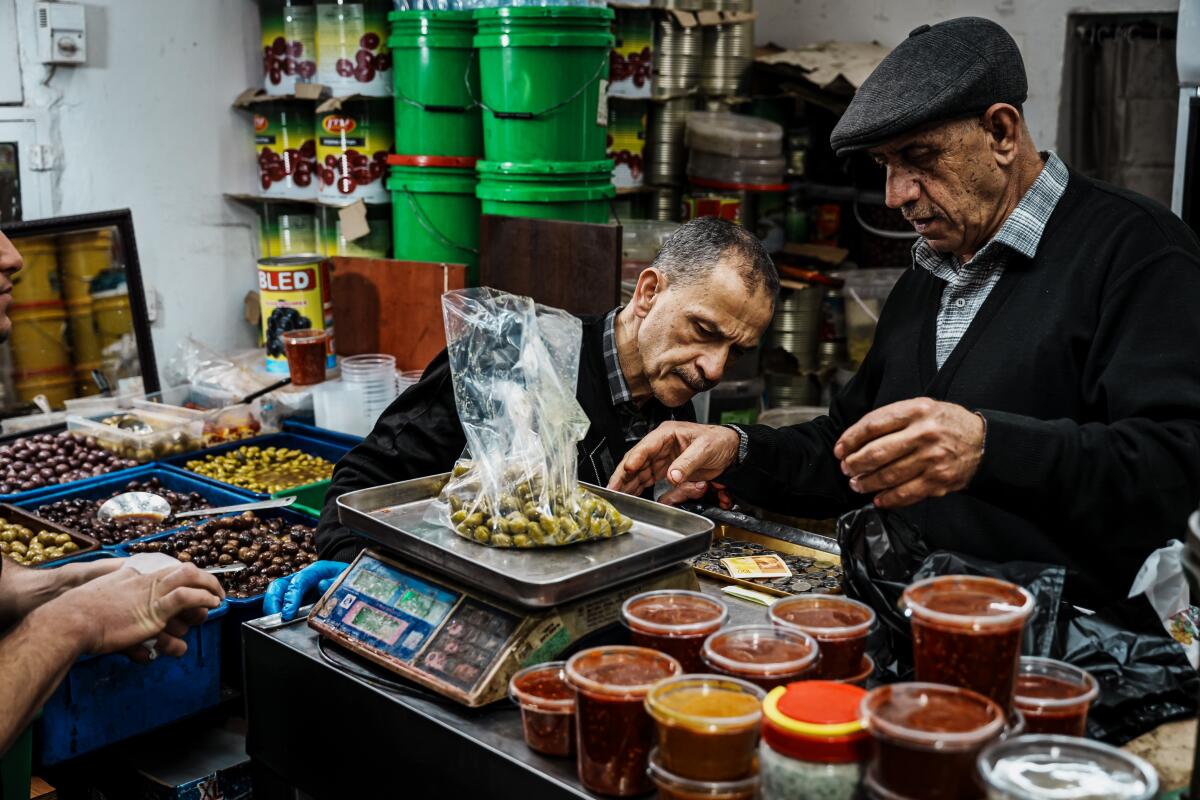
5
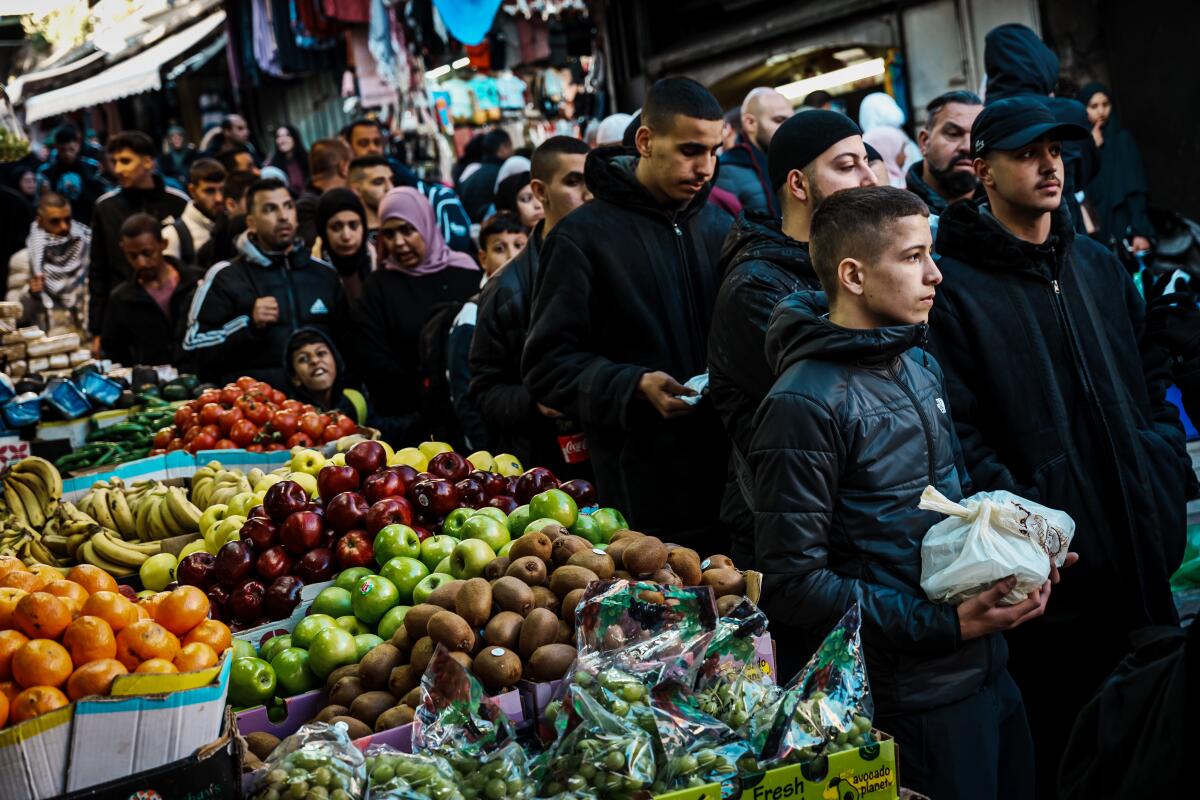
1. Anas Abu Assab prepares bottles of fresh carrot juice, a staple for Iftar meals, in Jerusalem’s Old City. 2. Qatayef, a popular Ramadan dessert, is prepared in a family-run store that is more than 320 years old. 3. Men prepare ka’ak al Quds, a type of bread popular during Ramadan, at the Abu Hazem Abu Snaineh bakery. 4. Abu Ali Eid weighs a bag of olives for customers. 5. Muslims walk to Al Aqsa Mosque carrying their Iftar meals.
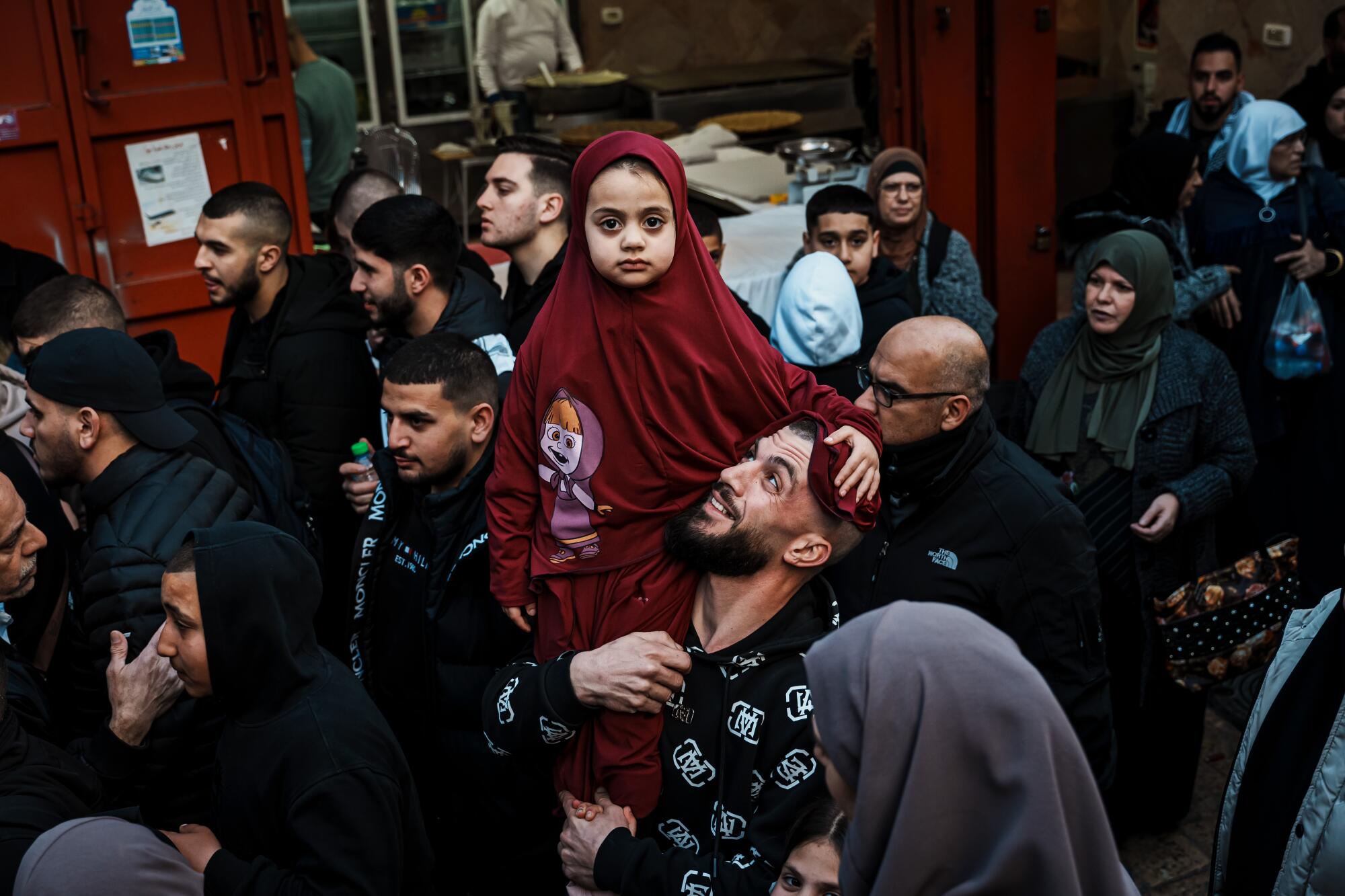
Muslims head to Al Aqsa Mosque carrying iftar meals, and sometimes their children.
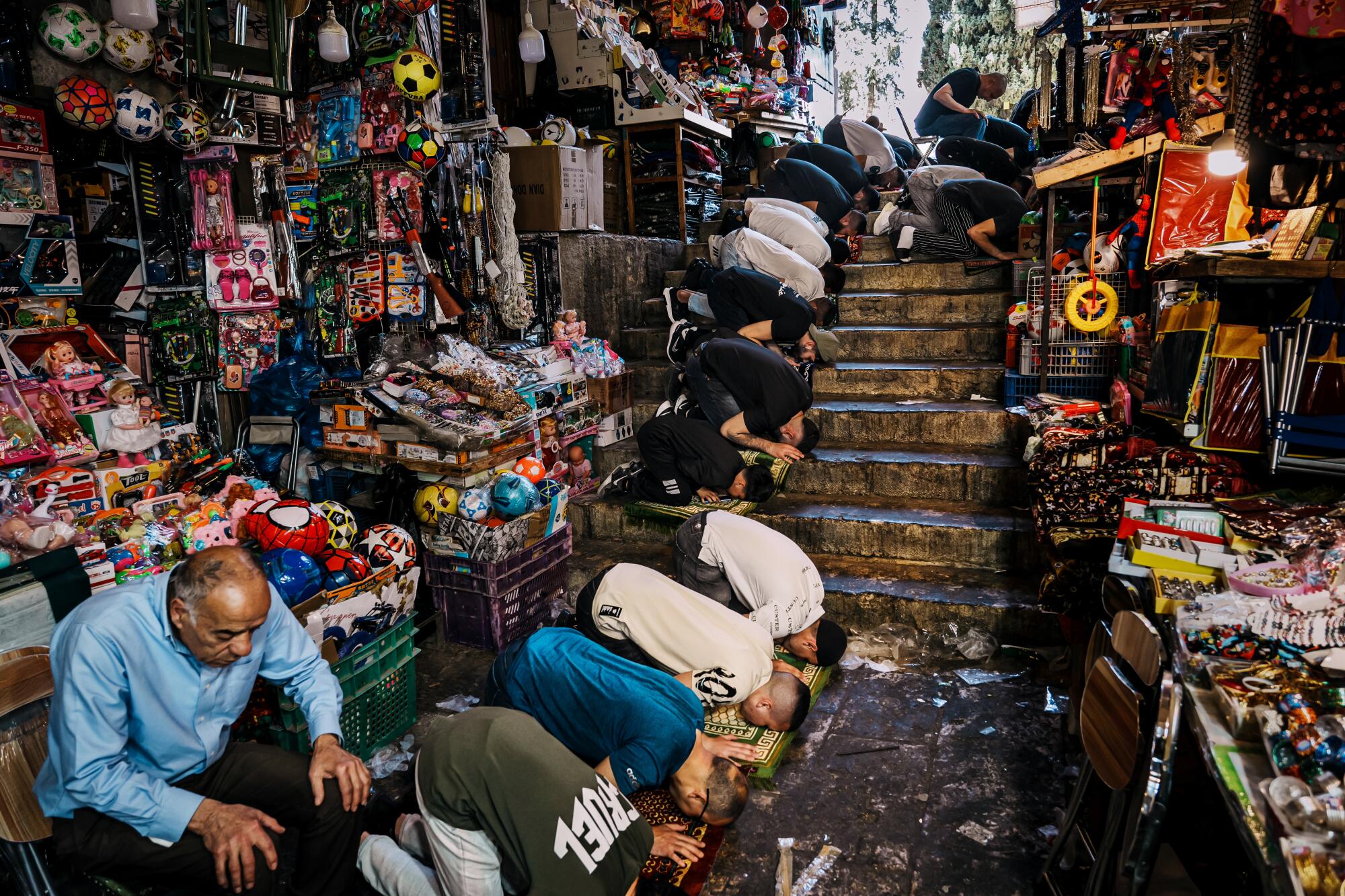
Worshipers pray in the market entrances leading to the Al Aqsa Mosque compound.
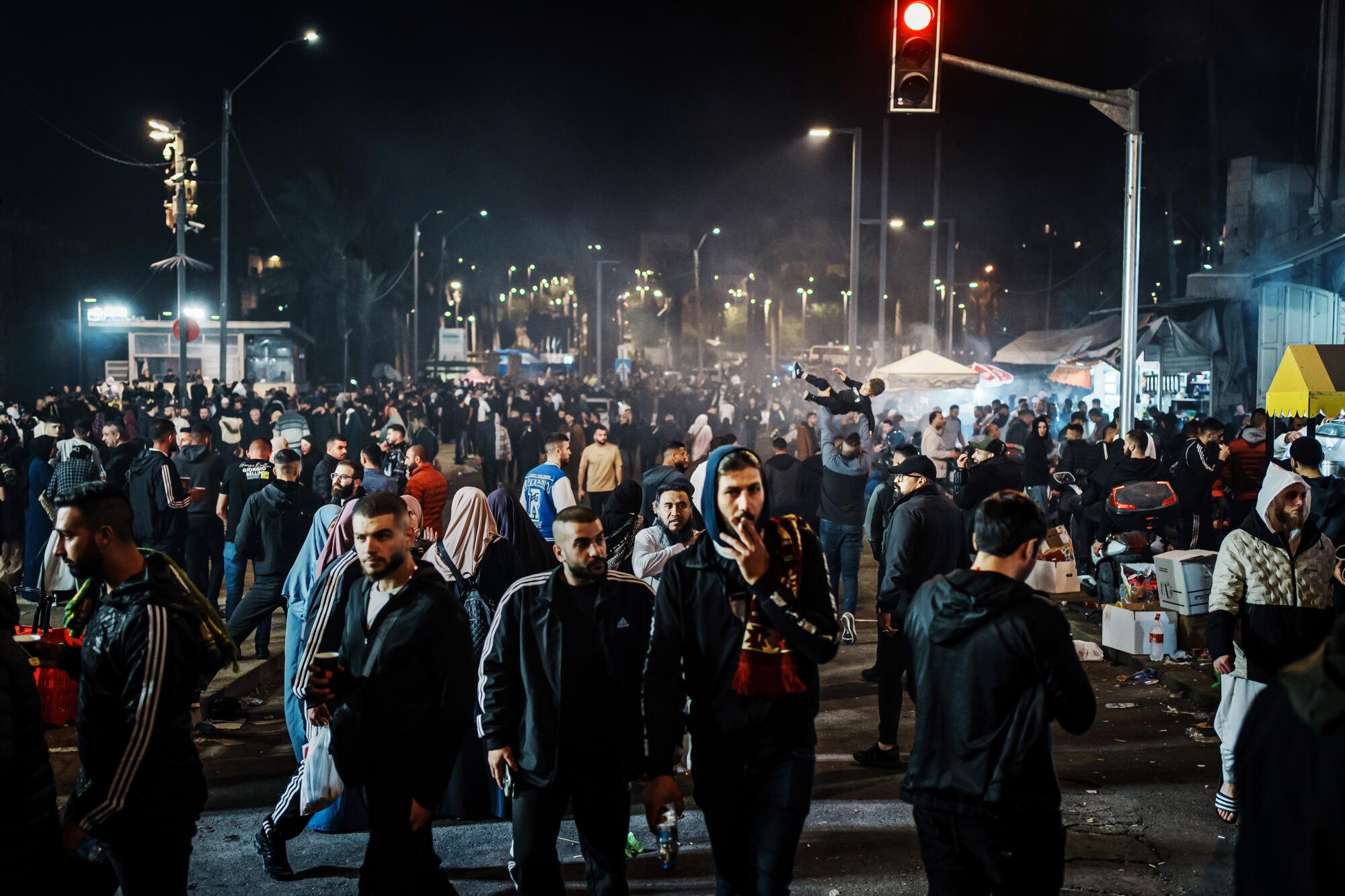
People gather near the Damascus Gate on Friday, which was Laylat al Qadr, the “night of power.”
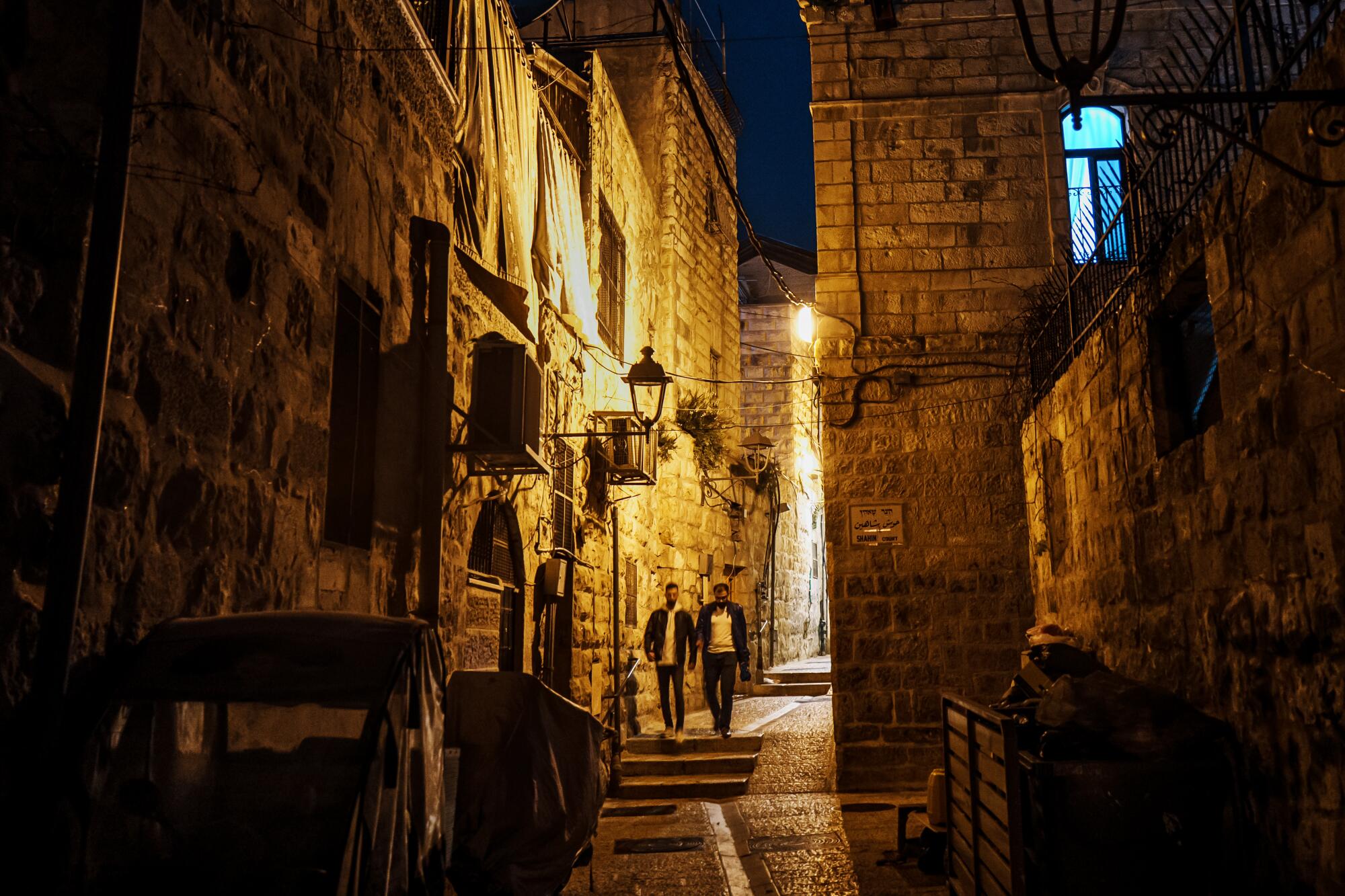
Alleyways in the Old City of Jerusalem lack the usual Ramadan decorations.
Yam reported from Jerusalem and Wilkinson from Washington.

